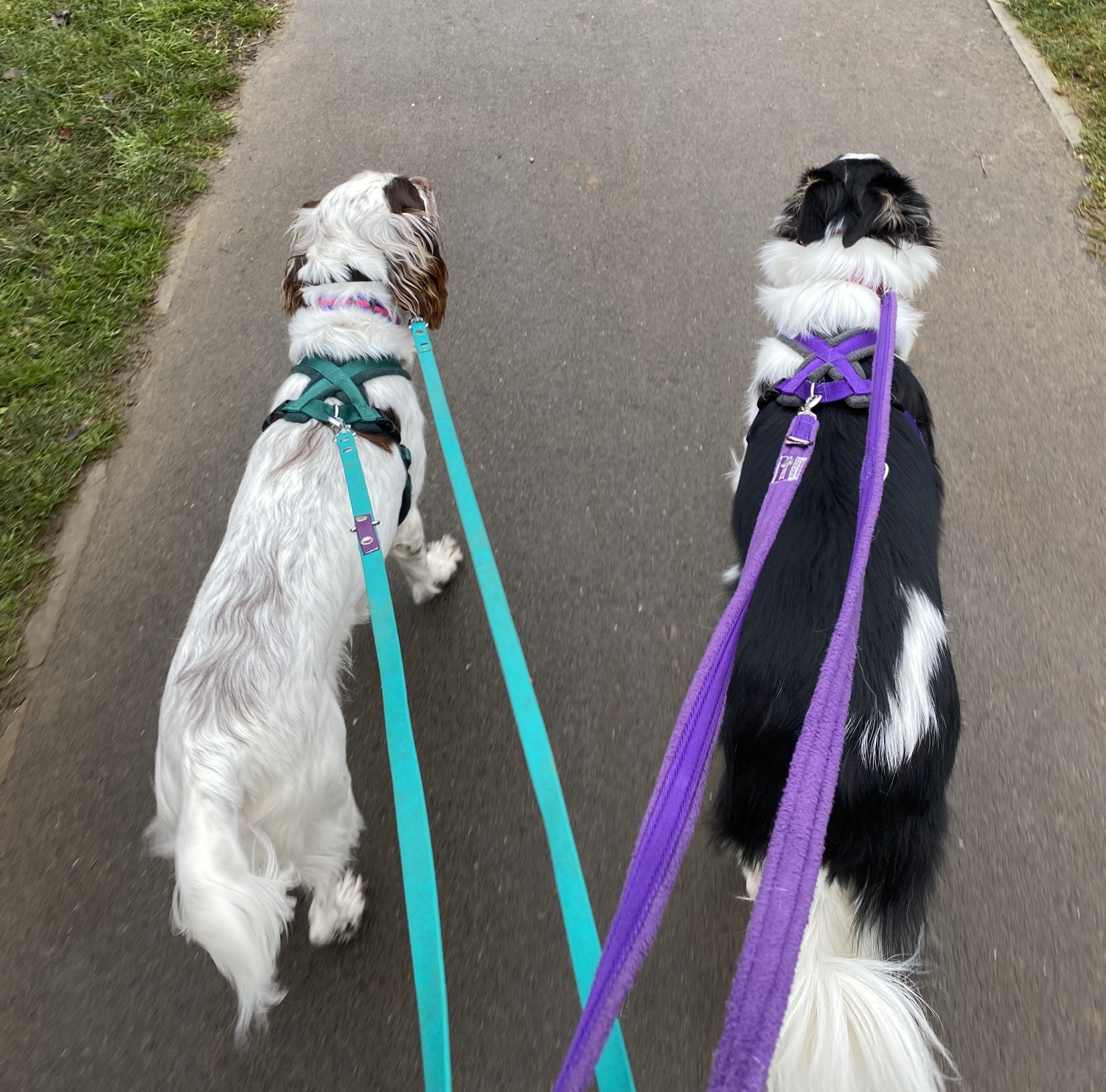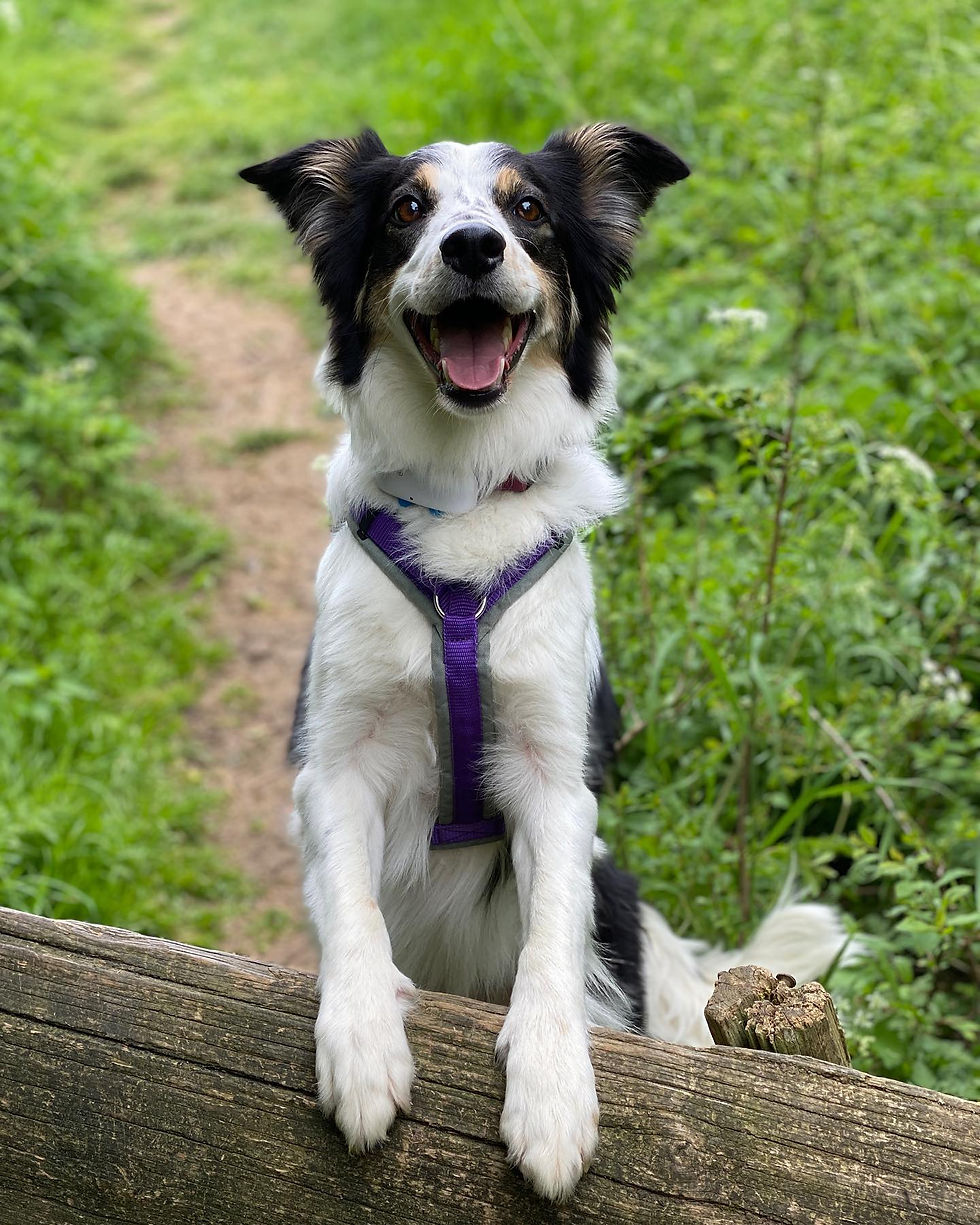Understanding Reactivity in dogs
- Kate Ross

- May 14, 2021
- 3 min read

Owning a reactive dog can be incredibly stressful, lonely and tiring. It can also lead to feelings of helplessness and despair for the owners. We would all love to own our idea of the perfect dog and when we don't have that, it can be upsetting. We want to assure each and every owner of reactive dog's that they aren't alone!
If you are out and about and you see a dog on lead, please put yours back on too. The dog might be training, they might be fearful, reactive or simply not be ok with other dogs (and this is totally ok! We don't always love every other human we meet!). Appreciate that every dog is different and although yours might be the most friendly, playful dog about, not all others are and we need to respect that (plus it will help avoid any potentially dangerous situations for all parties involved).
Dogs can be reactive in many different ways and to many different things. Some dogs are reactive when they hear the doorbell. Others are reactive to other dogs when they are on the lead and others don't seem to keen on humans. While none of these reactions are necessarily wrong, as owners, we want our dogs to be ok. We want them to enjoy life, to get the most from it and be able to experience many things.
Reactive dogs are behaving in a certain way towards a 'trigger' that they are not able to deal with and it is important to note that reactivity is not a voluntary behaviour. Their desire to remove/get away from/not see or hear the trigger takes over and this is when we see the reaction.
Regardless of when and where they react, there are a few basic things we should understand about these dogs.
They are NO different to any other dogs! They might be the cuddliest, soppiest, best lap dog in the world when inside the house, and simply struggle with some things outside. This doesn't make them bad, or wrong, it simply makes them who they are right now (this is really important - just because your a dog is reactive now, it doesn't mean they always have been, or always will be!).
We should understand and appreciate that they react and NOT force them into situations that make these reactions worse.
We should understand WHY these dogs are reacting in the way they are.
How can we help reactive dogs?
While we are not vets, if your dog appears to suddenly become reactive or aggressive, we always suggest a visit to the vets to rule out any physical change or pain that might be impacting their behaviour and ability to make good choices.
We've all heard the phrase 'Ah, they'll be ok, he'll just bark it out and then be fine'. This is VERY rarely, if ever, the case! The more our dog rehearses a behaviour, the more they will do it.
Avoid situations that send them over their threshold! Every dog will have a different threshold, but the one thing that is the same for them all is that once they cross it, they are unable to form new, positive memories from the experience. Every time they react to a particular thing, it increases the changes that they will continue to react to it each, and every time.
If your dog does react, move away or keep moving! Remember, they are reacting to a trigger , so keeping them in the same vicinity as it will only make the reaction worse.
Putting our dog's in a situation we KNOW involves a trigger will make things worse! Work with your dog in a space they feel safe, help build the concepts they need to create positive associations and only introduce them back into environments where triggers may be once you are confident they will be able to cope.
If you have a reactive dog and would like to learn more or get some help, please contact us info@inspiringtails.com. We are always on hand to answer questions or offer support.

.png)







.png)

.png)





Comments